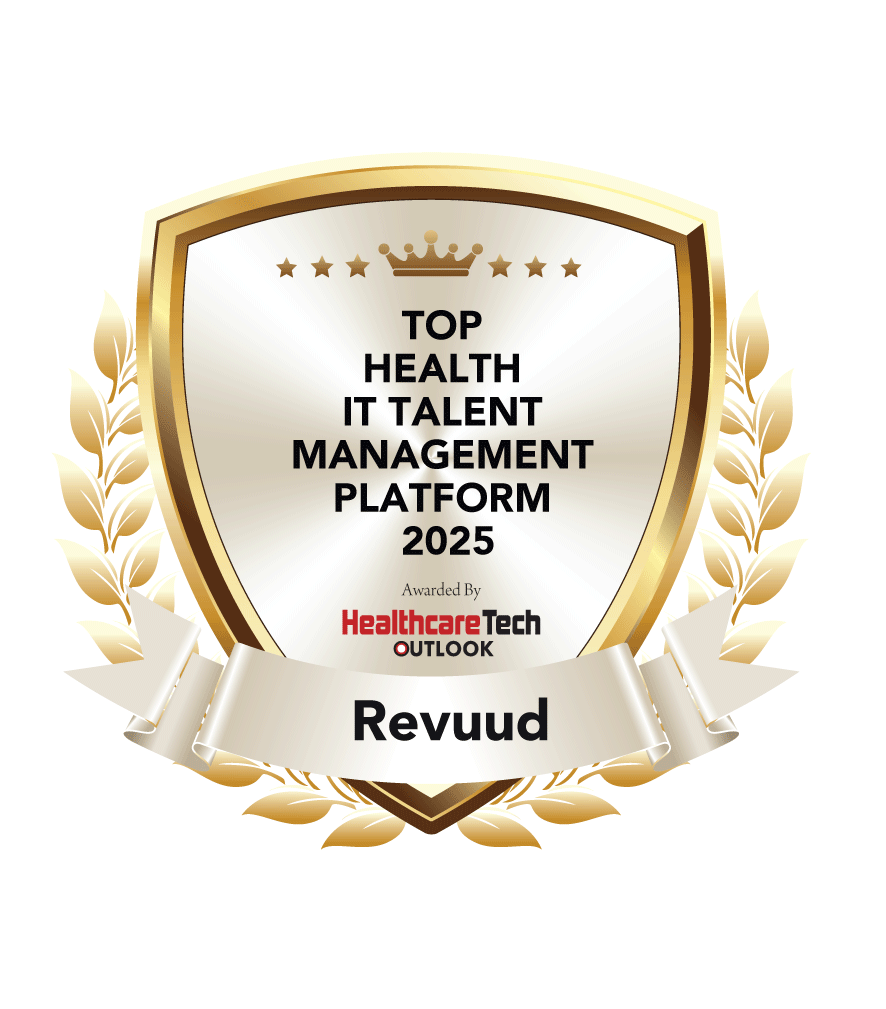Why Healthcare CIOs Are Rethinking Their IT Staffing Strategy
Industry Spotlight with Josh Sol, Managing Director at FTI Consulting and Revuud Advisory Board Member
“I was looking into solutions that could offer more transparency, give us better control over spend, and allow us to bring in talent based on real-time needs. Revuud stood out as one of the more innovative models I came across.”

The Healthcare IT Talent Model Is Being Reexamined
Contractor costs are rising. Timelines are tightening. The pressure to deliver is growing across the board. Many healthcare leaders are beginning to take a closer look at their existing staffing models and asking—do they still serve the demands of the moment?
Josh Sol has been on both sides of the equation. He previously served as Administrative Director of Ambulatory Clinical Systems and Innovation at Houston Methodist and now serves as a Managing Director at FTI Consulting, where he advises organizations across the healthcare landscape. We spoke with him about the challenges facing IT leaders today, what’s shifting in the market, and where platforms like Revuud may play a role in enabling new levels of agility and control.
Strategic IT Requires Breathing Room
Josh has worked inside health systems and now partners closely with executives navigating today’s complex operating environment. He’s seen how difficult it can be to balance day-to-day demands with long-term innovation.
“The CIOs I see thriving are the ones who’ve aligned IT closely with operational goals and positioned their teams as strategic partners in sustainability and transformation.”
Still, many teams are stretched thin. Resources are limited, and the volume of work doesn’t let up.
“In healthcare IT, the asks rarely slow down. Creating space for strategic work—without compromising on urgent needs—requires structure, clarity, and often, the right external support.”
Rethinking Traditional Staff Augmentation
There’s still tremendous value in trusted advisory relationships, especially those built on long-term alignment and shared outcomes. Josh’s work at FTI is rooted in that model.
“I see a clear distinction between advisory partnerships and traditional staff augmentation. Advisory work is collaborative and focused on helping organizations move forward in meaningful ways.”
That said, when it comes to more transactional models of staff aug—particularly those centered on filling roles quickly through third-party intermediaries—Josh has observed real challenges.
“In many cases, it becomes about filling a seat rather than achieving a result. And for organizations under financial pressure, that kind of approach can lead to budget overruns and missed expectations.”
Procurement processes can be slow. Visibility into spend is often limited. And the alignment between contractors and core IT goals isn’t always there. Josh has seen this create friction for CIOs who are trying to remain both agile and cost-conscious.

“It’s not that staff augmentation can’t work. In fact, when demand starts to outpace internal capacity, finding the right external support becomes a business imperative. I believe we’re entering a time when this model needs to evolve—especially as organizations face competing priorities, tighter controls, and the need to stay aligned on outcomes.”
Josh Sol
Managing Director at FTI Consulting
Exploring Revuud's Model
While at Houston Methodist, Josh evaluated Revuud as part of an effort to explore new staffing approaches during the COVID pandemic.
“I was looking into solutions that could offer more transparency, give us better control over spend, and allow us to bring in talent based on real-time needs. Revuud stood out as one of the more innovative models I came across.”
Although the platform wasn’t implemented before Josh transitioned roles, the concept left a lasting impression.
“What struck me was the level of visibility it offered. Being able to allocate budget up front, track hours and spend as they happen, and make adjustments midstream—that’s a powerful shift from how most health systems have historically operated.”
A More Strategic Approach to Contractor Management
If Josh were back inside a health system today, he’d approach contractor spend with even greater intentionality, especially given the financial and operational pressures many organizations are facing.
“With payer mix shifts, workforce burnout, and increasing demands on IT, I think many leaders are asking where we can reduce costs without slowing down mission-critical work.”
That starts with aligning external resources to clear priorities and giving teams the tools they need to manage those resources with precision.
“It’s not about eliminating outside support. It’s about using it in a way that adds value, maintains flexibility, and enables internal teams to stay focused on what matters most.”
Josh sees Revuud as one example of how that model can be reimagined.
“For organizations looking to gain more control over contractor engagement while still moving quickly, I believe Revuud’s approach can offer real value.”
The Future of Healthcare IT Staffing
In Josh’s view, many health systems are moving toward more modular, outcome-oriented partnerships. This shift isn’t about abandoning traditional models altogether—it’s about adding new tools to the toolbox.
“What I’m seeing is a desire for support models that feel like true extensions of the internal team. That means shared accountability, flexibility, and alignment with business goals.”
Josh also believes that innovation doesn’t always mean something new. In many cases, the biggest opportunities lie in optimizing what’s already in place.
“Whether it’s getting more out of core systems or improving how data is accessed and used, there’s often a lot of value sitting inside existing platforms. Sometimes the right external help is what unlocks that potential.”
Reflections for CIOs and IT Leaders
In conversations with healthcare leaders, Josh often comes back to a few themes.
✔️ Clear alignment on priorities to organizational goals and culture
✔️ A flexible approach to talent without sacrificing oversight
✔️ A focus on measurable outcomes
✔️ Strong internal-external collaboration
“In my experience, successful organizations don’t try to do everything. They focus on doing the right things with the right people—and they build systems that allow them to do that consistently.”
Considering a New Approach to IT Staffing?
Revuud is one way health systems are exploring a more transparent, flexible model for contractor engagement. The platform gives leaders visibility into spend, access to vetted healthcare IT consultants, and the ability to adapt quickly as priorities shift.
It may not be the right fit for every organization. But for those looking to move faster without giving up control, it’s a model worth exploring.
If this resonates with the challenges you’re navigating, the Revuud team would be happy to share more about how other health systems are using the platform.
Direct Access to Qualified Health IT Talent
Revuud removes the middleman, offering direct access to a pool of highly qualified talent. This means you can immediately connect with the right professionals without the delays and costs associated with traditional staffing agencies.
Flexibility with Fractional Resources
Engage fractional resources, providing the flexibility to scale your workforce up or down as needed. This adaptability ensures you can meet project demands without committing to long-term, full-time contracts, including bringing on contractors at less than 40 hours per week.
Ability to Build Your Dream Team
Our talent management platform supports short and long-term talent management, ensuring you always have access to the best professionals for your projects. The best part? Invite your favorite contractors to join Revuud and hire them at reduced rates in the future.


